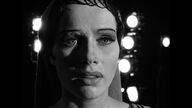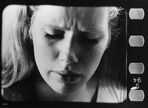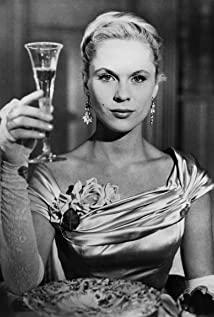We play roles in our lives - nurses, actors, wives, mothers, and we often introduce ourselves to others with the phrase "I am a...", but at the same time we know very well that when we say When the word "I" is used, it is nothing more than an empty signifier, and the full value of its existence is waiting to be retroactively assigned by the following predicate, and this predicate is always lacking enough to cover the whole of "I". It's just a mask to maintain ethics, a disguise to cover up the so-called "true self" that is cold and cruel. When I start a sentence with "I" as the subject, how far is the distance between the "I" who is the subject of speech and the one who is behind the speech action? This is what the two protagonists of "Masquerade" really want to explore. They are the hysterical and obsessive sides of the problem, Alma's violent mood swings, frenzied words and actions, menacing gestures and Elizabeth's compulsive silence, inexplicable laughter, all pursue the same purpose. : They want to be exposed, they want to be pierced by some stare, they want to be exposed to all the dirty and liquid chaos behind the mask. But they could also vaguely sense some ominous sign, something they were afraid of: they were afraid that when the mask was torn apart, what they saw was not the true self that was not infected by the outside world, but a piece of Void, not pure nothing, but holes and fissures. Just like the story about the beach and promiscuity that Alma told Elizabeth at the seaside villa, there must be a layer of narrative barrier to have all the attraction. Imagine if the whole picture was shot one by one, it would be How boring and dirty it will be, just like the child you don't want after love, once you take a step closer and go beyond this so-called appearance, you can only get nausea, disappointment and uncertainty. This is also why these two people who came together by accident because of the mask have never and could not completely abandon the mask, but can only use another mask quietly when taking off one mask. Cover yourself up, the silent face, the roaring face, the bleeding face, the wrinkled face, none of it is the real me. Either there is no self at all, or the mask is the self, or both express the same meaning: there is no actor behind the action, and the transcendental essence is the appearance of appearances.
Look at the faces in the photos that are "distorted" due to pixel and color reasons, and think that your own face is not one of them, a "mask" that is pale, weak, and has no function of expression, only with occasional eyes or flickering light. ". We can only appeal to the truly irreplaceable and intimate event of death, the only special moment when we can grasp that "I am who I am." What an interesting part of the conversation between the two, only half of their faces appear, and the other half is either on the other end of the camera or hidden by shadows. And when the two faces are put together, I suddenly understand the director's intention: I am not me, a part of me will always be "her", when I stroke my hair, it is as if "she" is stroked me, "I will never I'll be like you, I'm always changing, you can't affect me." This is a big lie, how can people survive without others. In the face of endless masks, what can we do but laugh?
"Let's accept it, it's just one of many inevitable things," I said to my face, crying.
"But..." I said.
View more about Persona reviews










